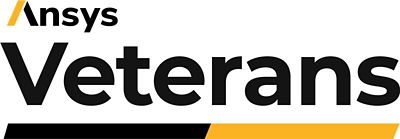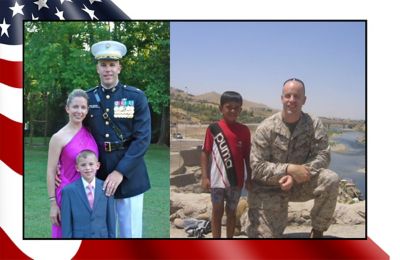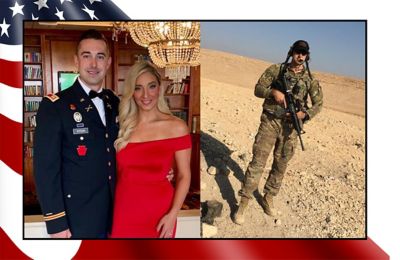-
United States -
United Kingdom -
India -
France -
Deutschland -
Italia -
日本 -
대한민국 -
中国 -
台灣
-
Ansys is committed to setting today's students up for success, by providing free simulation engineering software to students.
-
Ansys is committed to setting today's students up for success, by providing free simulation engineering software to students.
-
Ansys is committed to setting today's students up for success, by providing free simulation engineering software to students.
-
Contact Us -
Careers -
Students and Academic -
For United States and Canada
+1 844.462.6797
ANSYS BLOG
November 10, 2022
We Salute You: Celebrating Our Veterans
November 11 is Veterans Day, a federal holiday in the United States specifically designated to honor military veterans of the armed forces, including reservists with significant periods of active duty. It’s a great time for Ansys to recognize the unique and important contributions veterans make to our company every day around the world.
“I really appreciate what veterans bring to our business — i.e., their understanding of the government and how that relates to our business,” says Janet Lee, vice president, general counsel, secretary, and corporate executive sponsor for the Veterans’ employee resource group (ERG) at Ansys. “I have the cybersecurity team under my watch, and I find veterans on the team to be exceptionally inquisitive and intelligent. I’ve also experienced a strong feeling of community, as well as pride that our ERG members take in Ansys and their connections with one another, which I find to be very joyful.”

Veterans Day Q&A
In this brief interview, you’ll get to know two veterans — Mark Smydra and Matthew Kitson — including their experience at Ansys, the challenges they have faced, and how they are making a difference for other veterans.
Q: Could you introduce yourselves and share a bit about your military background?

Mark Smydra with his wife Karyn, and son Max (left); visiting with a local Kurdish boy at the historic Delal Bridge in Zakho, Iraq while deployed in 2006 (right).
Smydra: I’m a retired Marine Corps Intelligence Officer. I began my career in Special Operations with several deployments to the Balkans and then served primarily in interagency environments, worked in U.S. embassies as a military attaché, and as a military liaison to several foreign countries. I retired four years ago, then started a career as a management consultant before finding my way to Ansys as a director of Strategic Initiatives and Integration in Worldwide Sales.

Matthew Kitson with his wife Autumn (left); in Northern Jordan in 2016 in support of Operation Inherent Resolve (right).
Kitson: I joined the Ansys cyber security team three years ago. My military experience began in 2008 when I enlisted in the Army National Guard. From there I joined Army Reserve Officer Training Corps (ROTC) program in college – resulting in being commissioned as an Artillery Officer, spent eight years in the National Guard, and was eventually deployed to the Middle East. During my military career, I’ve held various leadership roles in the National Guard. In 2021, I transferred to the Army Reserves and became a Cyber Warfare Officer.
I’m currently serving as a Mission Element Lead in one of the Army’s Cyber Protection Teams.
Q: What challenges have you faced as veterans, both personally and professionally?
Kitson: It’s very interesting being at Ansys, where I’m surrounded by a lot of high-performing and high-achieving veterans, so it’s difficult for me to comment on their struggles. But I’m also a board member of a Pittsburgh-based nonprofit and could definitely attest to the fact that veterans face a lot of employment and homelessness issues, depending on which generation they are from.
Smydra: I’m going to define “veteran” as anyone who is currently serving, separated, or retired — not just someone who has previously served.
For me, there are two things that immediately jump to mind. One is the perception of veterans and the assumption that we have some type of mental illness or damage from our service, like post-traumatic stress disorder (PTSD). It is unfortunate when people, including employers, make incorrect assumptions about the mental wellness and demeanor of veterans when we have so much to offer. I am happy to say that I haven’t had this experience with Ansys.
The second thought is the commitment that family members, particularly military spouses, make in support of their veteran. All the tours and geographic moves can be very disruptive to the family unit, but they do teach resilience.
Q: I’ve definitely heard from friends in the military who have experienced those types of disruptions. Can you provide an example?
Kitson: More to Mark’s point, a potential challenge for the Reserve and Guard communities occurs when you depart your private or public sector career to go serve in the Reserve capacity on Active Duty. I don't know if the legislative protection that a service member receives is universally understood.
So, for example, I've heard anecdotally outside of Ansys that someone will be called to Active Duty from Reserve status for a six-month deployment, only to come back and find that the employer has replaced them — despite their protected status as a Reservist. Employers outside of Ansys don’t seem to understand some of these laws. It’s a continuous form of advocacy that needs to occur.
Q: What unique experiences and qualifications do you bring to your current position as a veteran?
Smydra: We make great teammates because part of our ethos is a “we” versus “me” mentality. So, whenever you have veterans on your team, you're going to have folks who are phenomenally supportive with a great sense of agility and adaptability.
Kitson: Veterans are goal-oriented and loyal, and have a strong sense of resiliency. When failure isn’t an option, it forces you to be innovative in your approach to solutions. Of course, some of those same skills develop naturally for non-veterans; however, the process seems to be greatly accelerated for veterans depending on when they transition from the military into the corporate sector.
Q: I understand both of you are very involved in giving back to your community. Can you share a little about that?
Kitson: I’m a recently appointed co-lead of our Veterans at Ansys ERG. Our goals center on building a community of veterans within the company, as well as how to best support them and improve their work experiences outside of military life.
What’s really interesting about our ERG that I have not really encountered at other companies is the fact that it is international. I get to talk to veterans from the U.K. and France, for example. I think that is a really cool aspect of our ERG — that we’re in communication with veterans from other countries who have served alongside us.
We’ve also been focusing on how to aid in the employment of more veterans. One way is through a nonprofit called American Corporate Partners (ACP).
Smydra: The ACP is a separate organization from Ansys, yet their goals and the goals of our ERG are intertwined. We’re currently sponsoring 10 transitioning veterans. It’s a year-long mentoring program where we meet at least once a month to coach them through whatever career stage they're in, whether it’s applying to graduate school, starting a small business, or seeking employment at Ansys.
I went through the program a couple years before I retired from active duty, and it was a terrific resource. I think that anyone that has supported one of those transitioning veterans through ACP found it phenomenally rewarding. I would submit that it's another form of service and just part of the mentality that veterans bring to the table.
Thank You for Your Service
We're really grateful for Smydra's and Kitson's service to our country, and to our business. Their insights contribute to making Ansys an environment that fosters respect and support for all our veterans.
Want to hear more about our #LifeAtAnsys? Visit our Careers site to learn more.











